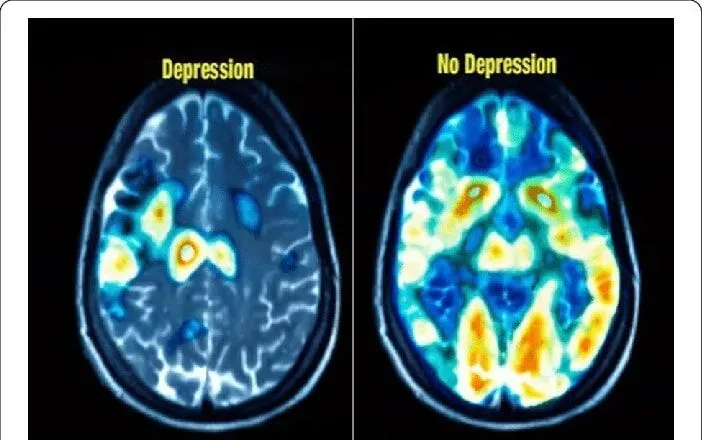Can Depression Make You Sick?
Depression is widely recognized as a mental health condition, but many people are unaware of its potential impact on physical health. The connection between mental and physical health is undeniable, and depression can indeed manifest in various physical symptoms, making a person feel unwell or even leading to more serious medical conditions. The mind and body are interconnected, and when mental health is compromised, physical health can suffer as well.
How Depression Affects the Body
While depression primarily affects a person's mood, emotions, and thinking patterns, it can also have significant consequences on physical well-being. Chronic stress and emotional strain, often linked to depression, can trigger or exacerbate physical ailments. Here are several ways in which depression can make you physically sick:
- Chronic Fatigue: One of the most common physical symptoms of depression is persistent fatigue. People with depression often feel exhausted even after a full night’s sleep. This lack of energy can make simple daily tasks feel overwhelming and lead to a constant state of physical and mental exhaustion.
- Weakened Immune System: Prolonged depression can suppress the immune system, making the body more susceptible to infections and illnesses. People experiencing depression may find themselves catching colds, the flu, or other illnesses more frequently than usual. This is largely due to the way stress hormones, like cortisol, affect the immune system's ability to function properly.
- Gastrointestinal Problems: Depression can lead to digestive issues such as stomach pain, nausea, constipation, or diarrhea. Many individuals with depression report a strong connection between their emotional state and gut health. The gut is often referred to as the “second brain” because it contains a vast network of neurons that communicate with the brain, particularly in times of stress and depression.
- Headaches and Migraines: Depression has been closely linked to the occurrence of tension headaches and migraines. Emotional distress and mental strain can cause muscles to tighten, leading to head pain that can become chronic over time.
- Chronic Pain: Depression can intensify the sensation of physical pain, particularly in people who already have underlying conditions like arthritis, fibromyalgia, or back pain. Research suggests that depression changes how the brain processes pain signals, often making the pain feel more severe and harder to treat.
- Sleep Disturbances: Many people with depression experience insomnia or, conversely, excessive sleepiness (hypersomnia). Sleep disturbances can worsen both mental and physical health, creating a vicious cycle of poor sleep and worsening depression.
- Weight Gain or Loss: Depression can lead to significant changes in appetite and weight. Some individuals may overeat for comfort, leading to weight gain and associated health problems like diabetes or heart disease. Others may lose their appetite and experience unhealthy weight loss, leading to malnutrition and weakness.
The Role of Stress in Physical Health
One of the major reasons depression makes people sick is due to its relationship with chronic stress. When a person is under constant stress due to depression, the body’s “fight or flight” response remains activated for extended periods. This can lead to a host of physical problems, such as increased heart rate, elevated blood pressure, and inflammation. Over time, these responses can contribute to more serious conditions such as heart disease, stroke, or autoimmune disorders.
Long-Term Health Risks of Untreated Depression
Left untreated, depression can contribute to long-term physical health issues. Some of the most concerning risks include:
- Heart Disease: Depression is a significant risk factor for cardiovascular diseases. Research has shown that people with depression are more likely to develop heart disease, and those with both conditions are at a higher risk of complications such as heart attack or stroke.
- Diabetes: Depression can increase the risk of developing type 2 diabetes, partly due to its effects on lifestyle factors like physical activity and diet. In addition, the stress response associated with depression can lead to insulin resistance, which is a precursor to diabetes.
- Chronic Inflammation: Depression has been linked to increased levels of inflammation in the body. Chronic inflammation is associated with various health conditions, including arthritis, autoimmune diseases, and cancer.
- Digestive Disorders: As mentioned earlier, depression can disrupt gut health, leading to conditions such as irritable bowel syndrome (IBS). Ongoing stress and emotional distress can exacerbate these gastrointestinal issues.
Seeking Help and Treatment for Depression
Because depression can manifest physically as well as mentally, it’s essential to seek help as early as possible. Ignoring the symptoms of depression can lead to worsening mental health and increased physical health problems over time. The most effective treatment plans often combine mental health care with physical health management. Here are some important steps to take:
- Therapy: Cognitive Behavioral Therapy (CBT), psychotherapy, and other forms of talk therapy can help individuals address the emotional and cognitive patterns contributing to their depression and physical symptoms.
- Medication: Antidepressants can help regulate brain chemistry, improving mood and reducing physical symptoms. A healthcare provider can help determine the right medication based on individual needs.
- Exercise and Diet: Regular physical activity has been shown to reduce the symptoms of depression and improve physical health. A balanced diet rich in nutrients can support both mental and physical well-being.
- Stress Management: Techniques such as mindfulness meditation, deep breathing exercises, and yoga can help reduce the stress associated with depression, improving both mental and physical health.
- Medical Care: It’s important to address any physical symptoms by seeing a healthcare provider who can evaluate and treat any underlying health conditions that may be related to or exacerbated by depression.
Depression is much more than just a mental health condition; it can have serious physical consequences as well. From fatigue and headaches to digestive issues and heart disease, depression can make you feel sick in many ways. Understanding the mind-body connection is crucial in managing both the mental and physical symptoms of depression. Seeking comprehensive treatment that addresses both aspects is key to improving overall health and quality of life.



